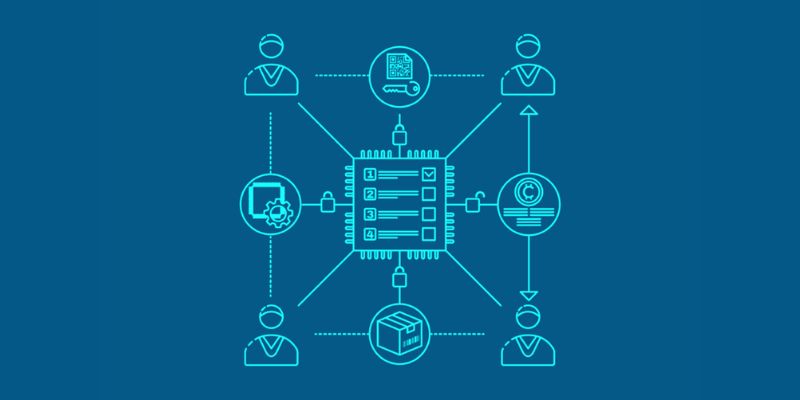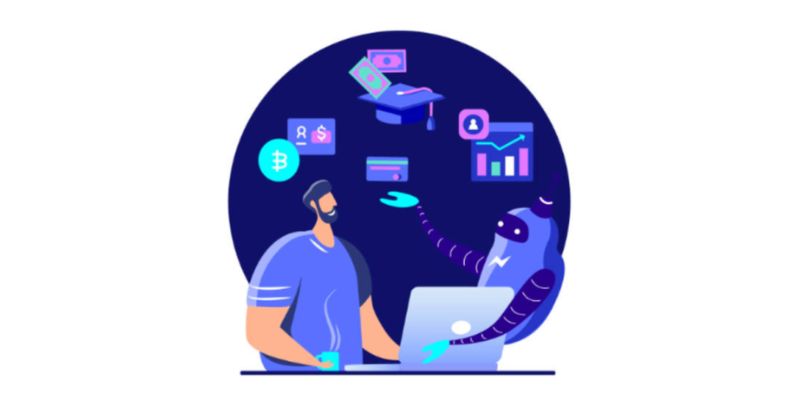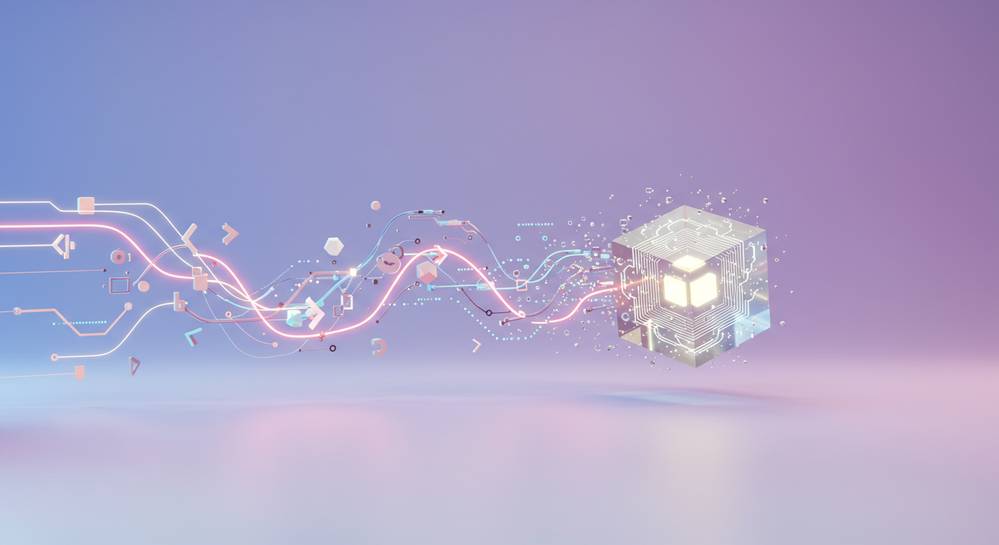Welcome to the era of Building trustless transactions and eliminating intermediaries! Imagine a world where you call the shots, no middlemen, no hidden fees, just you and the sheer confidence in your transactions. That’s the power of trustless trading – where security isn’t just a promise; it’s coded into the very fabric of the deal. My journey through the blockchain has uncovered secrets to seamless deals where your control is unchallenged. Ready to dive in? Let’s shatter the chains of traditional dealings together and step into the realm of guaranteed security. With every sentence here, you move closer to mastering the art of direct and secure transactions. It’s not just a transaction; it’s your right to unfaltering assurance.
Understanding Trustless Transactions and Decentralized Ledger Technology
The Evolution from Traditional to Decentralized Systems
We all know how banks and lawyers are the go-to people for money and deals. They are like middlemen who make sure everything is fair. But what if we could skip them? That’s where blockchain comes in. Blockchain allows people to make deals without middlemen. It uses math and computers to keep things safe and open.
Let’s make it simple. Imagine a big book where everyone can write in it and see what’s written. But once written, no one can change it. That’s kind of what blockchain is— a digital book that keeps our deals safe forever.
Blockchain works day and night. It never rests, making sure our trades and deals are good. This means we can trust each other without having someone in the middle making sure of it.
How Decentralized Ledger Technology Ensures Security and Transparency
Now, let’s dive deeper. What makes this tech so special? Smart contracts are a big part of it. Think of them as robot deals. They check if everything’s right and only then let the deal happen. This keeps our trades safe and straight.
Smart contracts work without anyone telling them what to do. They follow rules set in computer code. If you meet what the contract needs, your deal goes through; if not, it’ll wait till everything’s right.
Blockchain is a team of many computers. They all agree on what’s true and what’s not. This teamwork is called consensus algorithms. They are like referees in a game, making sure everyone plays by the rules.
This super team makes it tough for bad folks to mess with our trades. Even if someone tries, they can’t trick all computers at once. It’s like trying to trick a whole city at the same time—too hard to do!
Cryptocurrency, like Bitcoin, uses this tech to move money around without banks. It’s all direct and fast. And DeFi? It’s a way to do finance on blockchain. It’s like having a money system where you call the shots, not big banks.
For people who dig freedom and control over their stuff, this is big. It’s a way of dealing with money that cuts out sneaky fees and long waits. It makes money matters a fair game for all.
So why should we care? It’s all about trust. With blockchain, there’s no need to trust a person; we trust the system. It’s all open and clear for anyone to see. And the best part? It gives us the power to deal directly with others, shaking hands without a middleman in sight.
These days, we call it trustless. Sure, it sounds odd—don’t we want trust? But in blockchain land, trustless means our deals are safe, even if we don’t know the other person. It’s a big step forward for how we do business and keep our money safe.
Technology like this is changing the world, right? It helps us trade things without fuss. It brings people from all corners together. We all get to join this digital handshake and make deals on a global stage.

The Critical Role of Smart Contracts in Eliminating Intermediaries
Mechanisms Behind Smart Contract Functionality
Let’s dig into how smart contracts work. You might wonder, “What are smart contracts?” They are like promises that live on the internet. But not the type that can be broken easily. These are rock-solid and follow simple ‘if-this-then-that’ rules. Tied to the blockchain, they are set in digital stone when all parties agree. And they kick into action without anyone pushing buttons.
So, when you make a deal, the smart contract checks if both sides did what they said they would. If yes, it completes the deal for you. No need for a middleman to nod along. It’s all automated – quick and trustworthy.
Smart Contracts as the Backbone of Direct Blockchain Transactions
Smart contracts are real game-changers. They let you make deals directly with others, anywhere in the world. With these smart promises, you can trade, loan, or buy without a third person in the mix. It’s just you, the other party, and trust built right in. You save time, cut out extra fees, and keep your deals private.
Consider doing business on the blockchain as making deals in a safe, clear room where everyone can see, but only the ones in the deal can touch. And the room makes sure no one breaks the rules. If someone tries, the deal just stops — no harm, no foul. This is what we mean when we say “trustless system.” It’s not about not trusting each other; it’s about not needing to.
Blockchain technology is your silent guardian. It doesn’t sleep, and it doesn’t take bribes. Unlike humans, it won’t make mistakes or ignore the rules for a pal. It handles your cryptocurrency secure payments and any other transactions, day in and day out, without complaint.
When you hear terms like decentralized finance (DeFi), that’s the power of blockchain and smart contracts working together. It’s like having a bank in cyberspace, only this one doesn’t have a manager or a fancy building. Instead, it relies on everyone working together to keep it running right. You got peer-to-peer network transactions, which means you deal directly with someone else. Not a single corporation in sight.
And you know how things can get messy with money and valuables? In the blockchain world, that’s not a big worry. Non-custodial wallets give you full control of your cash, no more handing your keys to someone else. Cross-chain interoperability means you can work with different types of blockchain, like a universal language for your assets.
So, imagine a future where making a deal is as simple as a handshake — secure, direct, and open. With smart contracts on the blockchain, that’s not a dream. It’s real, and it’s here. We can now trade, lend, and operate without waiting for someone to say it’s okay. We’re the bosses of our transactions, big and small, and that’s something to get excited about.

Advancing Towards Decentralized Finance (DeFi) and Peer-to-Peer Networks
DeFi as the New Frontier for Financial Sovereignty
Imagine a world where you control your money with no banks in the middle. This is DeFi, or decentralized finance. It’s a system where you can save, borrow, lend, and trade money directly with others. By cutting out the middleman, DeFi puts you in charge. It uses blockchain technology to keep your money safe and sound. Blockchain is like a digital ledger that everyone can see but no one can tamper with.
DeFi runs on something called smart contracts. They work like vending machines. You put something in, like cryptocurrency, and the contract automatically does something, like loan you money. There’s no need for a bank to check or approve what you’re doing. It’s all handled by the code.
Peer-to-Peer Networks: Empowering Direct Financial Interactions
Peer-to-peer (P2P) networks make direct trades possible. They are networks of computers that talk to each other without a boss computer telling them what to do. This means you can send money or get paid without any company in between. Peer-to-peer is the heart of cryptocurrency payments.
Here’s why P2P and DeFi matter. They give you more power and freedom. You don’t have to rely on banks or credit card firms. You can do things on your own terms. It’s like being in the driver’s seat with your money.
Blockchain technology makes sure that once a deal is done, it’s done for good. These records can’t be changed or deleted. This means you can trust the system without needing to trust the person on the other end. We call this ‘trustless’ because you don’t need to know or trust them to do safe business.
Smart contracts and P2P networks are just the beginning. They can also help you invest, lend, and even insure your assets without big companies. By using blockchain, we’re creating a world that doesn’t need these old-school middlemen. We unlock new ways to do business that are easier, cheaper, and safer.
In the end, DeFi and P2P networks are about you taking back control. You can make deals, grow your wealth, and manage your finances without waiting on anyone. It’s a big shift from how we’ve always done things. But it’s a shift that puts power where it belongs—with you.
Keep your eye on DeFi because it’s changing how we think about money. It’s growing fast, and it’s here to stay. Get ready for a future with more freedom, less hassle, and all the control. Welcome to the new frontier of finance.

Navigating the Future with Cross-Chain Interoperability and Tokenization
Cross-Chain Solutions for a Unified Blockchain Ecosystem
Cross-chain tech lets different blockchains talk to each other. This means more teamwork in the blockchain world. To get why this matters, think about using email. You can send emails to friends no matter who provides their email service, right? Cross-chain solutions give blockchains this same power to connect, which is huge! These bridges allow you to do cool things like send cryptocurrency across different blockchains. So, your Bitcoin can become Ethereum without a hassle.
Imagine swapping game items from different games with ease. Better yet, think about businesses sharing info securely in seconds. That’s the future we’re making with cross-chain interoperability. It means no one’s left out. Everyone gets to play in the same big, digital playground.
Tokenization: Avenues for Real-World Asset Integration on the Blockchain
Now, let’s gab about tokenization. What’s that? It’s turning stuff like houses, art, and even your guitar into digital tokens on the blockchain. Crazy, right? But here’s why it rocks: these tokens can represent ownership and they’re easy to trade. So instead of dealing with loads of paper for selling a piece of land, you just trade the token that represents it.
This shatters barriers and makes trading, lending, and owning things simpler and faster. Your skateboard could be tokenized and, if you wanted, swapped for a piece of digital art. Anyone with Internet can join in, not just the wealthy or well-connected.
Both tokenization and cross-chain jams break down walls in the blockchain party. They link different ledgers, making a huge web of blockchains that anyone can use. They crush limits on what you can do with blockchain, just like the Internet did for sharing cat videos. And that, my friends, is why we can’t stop chatting about these interwoven wonders.
In this post, I walked you through the shift from old money ways to blockchains without trust needs. We checked out how secure and open ledgers can be. This tech lets you see all that happens, cutting out middle folks. It’s big!
Smart contracts are key here. They’re what make direct deals on the blockchain happen. Think of them like the spine of this whole thing. They mean business gets done fast, without extra steps or people in between.
DeFi is up next, changing how we handle our cash. It’s like being your own bank, with more power to you. Also, trading with others is just between you two; no one else. That’s big for freedom and control.
Lastly, we eyed how different blockchains can link up and use real stuff like houses as tokens. This could change a lot about money and owning things.
Looking ahead, expect big shake-ups in how we buy, sell, and trust with money. Blockchains will be at the heart of it, and it’s pretty exciting to be part of this. Let’s ride this wave to where finance is headed!
Q&A :
How does building trustless transactions improve security?
Trustless transactions provide enhanced security because they do not rely on a central authority or middlemen to validate transactions. Instead, these transactions rely on cryptographic protocols and decentralized networks to provide a transparent and immutable ledger of activity. This minimizes the risk of fraud, corruption, or interference, as the system as a whole verifies transaction authenticity.
Can trustless transactions truly eliminate intermediaries?
Yes, trustless transactions have the potential to eliminate intermediaries by utilizing blockchain technology. Since a decentralized network of nodes verifies transactions in a trustless environment, there’s often no need for traditional intermediaries like banks or clearinghouses. Smart contracts can automate and enforce the terms of an agreement, further reducing the need for third-party intervention.
What are the main benefits of trustless transactions for businesses?
For businesses, the main benefits of trustless transactions include reduced transaction times and costs, as well as increased transparency and security. By eliminating intermediaries, businesses can enjoy faster transaction settlements and potentially lower fees. The immutable nature of blockchain technology also ensures that all transactions are recorded securely and permanently, making them easily verifiable and reducing the likelihood of disputes.
How can consumers ensure their participation in trustless transactions is secure?
Consumers can ensure their participation in trustless transactions is secure by practicing good digital hygiene. This includes using strong, unique passwords for their wallets and exchange accounts, enabling two-factor authentication, and keeping their private keys offline or in a secure digital wallet. Regularly updating software and being vigilant about phishing attempts are also crucial for maintaining security.
What industries could benefit from trustless transactions?
Several industries could benefit from trustless transactions, including finance, supply chain management, and healthcare. In finance, it can provide transparency and speed up cross-border payments. In supply chain management, it ensures the authenticity of product sourcing and tracking. For healthcare, it offers secure and immutable patient data storage and sharing. Other industries such as real estate, voting systems, and intellectual property management also stand to gain from trustless transaction technologies.



